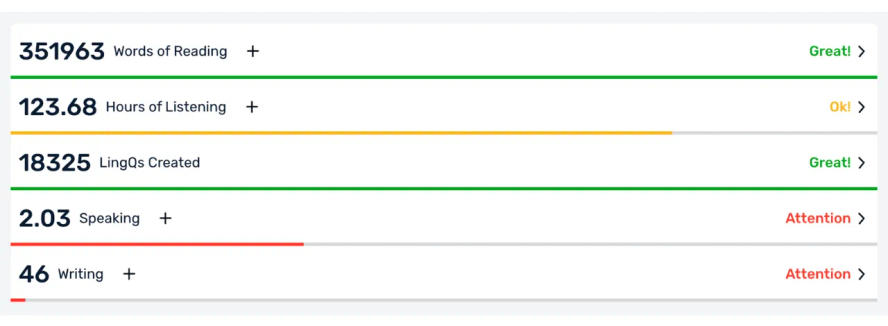TL;DR Summary
Learning solo is totally possible if you embrace exposure, consistency, and trust in the process. Don’t obsess over rules early. Let comprehension and pattern recognition lead you. Use tools and interactions when they support your learning path, not because someone says you must.
***
Whether you’re in a classroom or entirely on your own, the truth remains: success in language learning starts with independence. No one else can do the learning for you. So, how do you learn a language on your own? Ultimately, your progress comes down to:- your attitude
- the time you spend with the language
- your ability to notice patterns
1. Get to Know Yourself as a Learner
When you set out to learn a language on your own, it’s important to be honest with yourself. What routines fit your life? Do you like long study sessions or short bursts? You might prefer to listen to lessons while walking or do some reading in the morning with coffee. Your language learning method should reflect your preferences and habits. You don’t need to follow someone else’s system. You need one that works for you. Once you understand how you like to learn, you can create a consistent routine and stick with it.2. Invest in the Right Materials
Find Quality Content
To succeed as an independent learner, you need a steady stream of content that keeps you motivated. Personally, I recommend content that is:-
- Short enough to complete in one sitting
-
- Authentic or conversational
-
- Genuinely interesting to you

Starter Materials
If you’re starting from zero, use beginner materials or starter books. Dover’s “Essential Grammar” series offers compact, no-drill guides that are great for reference. You don’t need to memorize every rule—just get a sense of the structure and refer back when needed. To me, it almost doesn’t matter which starter book you use. In fact, you can use several starter books. It’s good to cover the same material across different contexts.3. Make Very Specific Goals
Learning a new language can feel foggy, especially when it’s a lone effort. To avoid frustration, I recommend setting measurable goals. These could be:-
- Read 10,000 words this week
-
- Save 100 new vocabulary words on LingQ
-
- Listen to 3 hours of audio
 Specific goals create momentum and clarity. On LingQ, your activity is tracked automatically, so you can see how much progress you’re making. Even when it feels like you’re stuck, these metrics show that you’re moving forward.
Specific goals create momentum and clarity. On LingQ, your activity is tracked automatically, so you can see how much progress you’re making. Even when it feels like you’re stuck, these metrics show that you’re moving forward.
4. Connect with a Tutor
While most of your learning happens on your own, it’s essential to test your speaking skills regularly. Working with a tutor on LingQ or italki can give you a confidence boost, help identify areas to improve, and make the process more social. After your sessions, review your tutor’s feedback and analyze your common mistakes. This is where real growth happens. You’ll not only learn to express yourself better, but you’ll feel your independence strengthen.5. Push Yourself Toward Authentic Material
Your ultimate goal should be to enjoy the language the way native speakers do. As you gain confidence, start reading books, listening to podcasts, or watching shows in your target language. Gradually increase the difficulty of the content that your read and listen to. Choose topics you already care about. If you like history, read history. If you love cooking, watch cooking videos. When your curiosity drives your learning, the process becomes more natural. You’re not just studying anymore—you’re living in the language.Conclusion
Learning a language on your own is not only possible—it exemplifies how personal and independent learning a language should be. By knowing yourself, choosing the right materials, setting goals, connecting with others, and constantly raising the bar with authentic content, you’ll create an immersive, personal path to success. You don’t need a classroom. You need curiosity, consistency, and the willingness to keep going even when things feel uncertain. And with tools like LingQ, you’ll have everything you need to make your independent language learning journey efficient and enjoyable.







